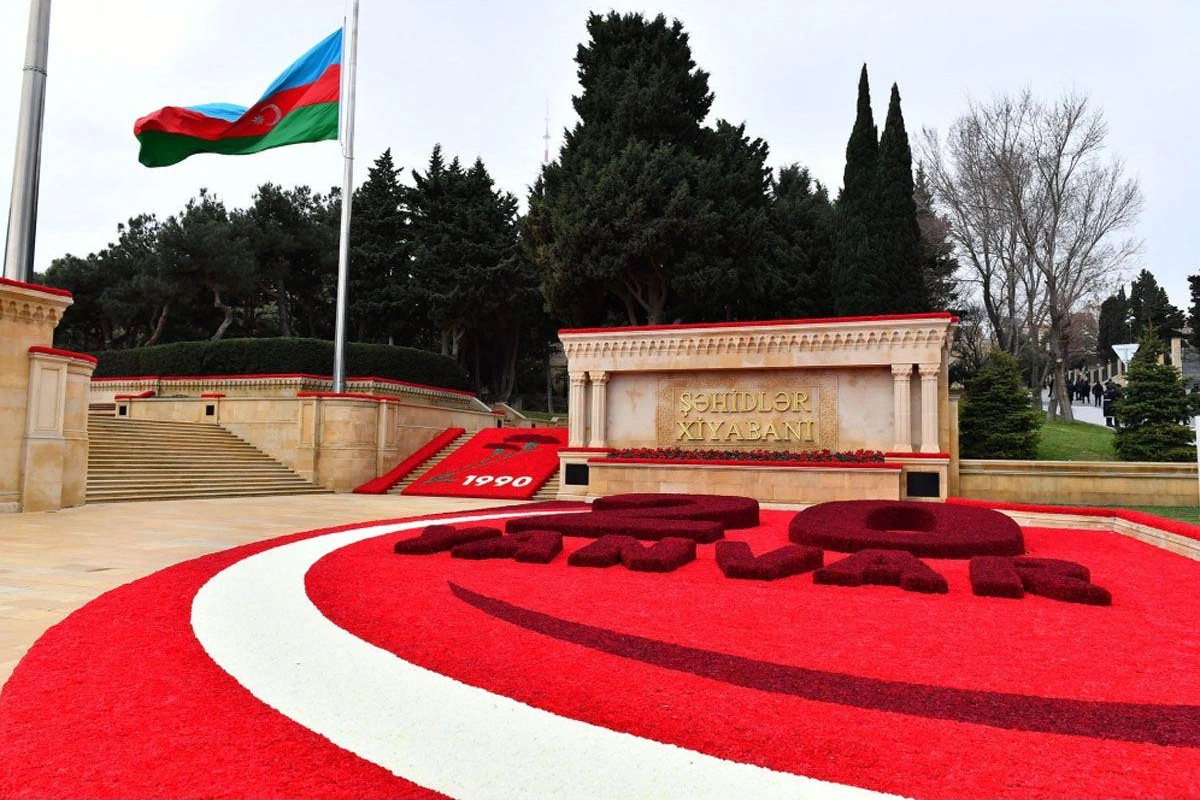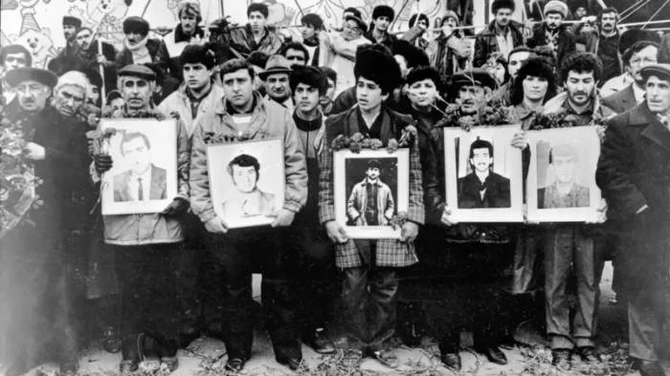
Photo: Azernews
By Tural Heybatov
Recently, Timofei Bordachev, Program Director of the Valdai Club, published an article in Vzglyad on bidding farewell to the old world order. Among other observations, he commented on post-Soviet countries, particularly Azerbaijan, in the context of U.S. President Donald Trump’s intentions regarding Greenland. Bordachev suggested that Baku, in its relations with Armenia, is attempting to emulate Trump. But that’s only part of the problem. According to him, the U.S.’s decisiveness resonates most where the tradition of statehood is not firmly established, and independence was achieved not through struggle but as a consequence of circumstances, deriving from the end of the Cold War and the rivalry of superpowers.
On the 35th anniversary of Black January, such arrogant remarks sound particularly cynical. No former Soviet republic sacrificed as much in the fight for independence as Azerbaijan. Russian political analysts, as always, lack knowledge of the subject matter, judging everyone from the pedestal of a state that still resents the liberation of its "provinces." In reality, Azerbaijan’s independence was hard-earned through bloodshed and resistance against a brutal regime that placed little value on the lives of Azerbaijani citizens.
Thirty-five years ago, on the night of January 19-20, 1990, under orders from the Soviet leadership, a 26,000-strong Soviet army entered Baku, Sumgait, and other Azerbaijani cities. This military invasion claimed the lives of 147 people, left 744 severely injured, and resulted in the arrest of 841 individuals, with 5 reported missing. Over 200 homes and apartments were destroyed or burned, alongside 80 vehicles, including ambulances, with damages totaling 5,637,286 rubles. Among the dead were women, children, elderly individuals, and medical workers.
The assault on Baku was carried out under the command of Soviet Defense Minister Dmitry Yazov, involving tank units, Soviet Interior Ministry troops, and KGB forces. On the evening of January 19, an energy block at the Baku television center was destroyed, and the population only learned of the state of emergency seven hours later.
In no other former Soviet republic did the army act with such brutality and disregard for human life as it did in Baku. Tanks crushed civilians, soldiers shot at residential windows, bayoneted people, and destroyed infrastructure and vehicles with armored equipment. The occupying army spared no one in its path. The operation aimed to terrorize the Azerbaijani people and force submission through a bloodbath.
Instead, it achieved the opposite. The bloody invasion did not break the people’s resolve but fueled the national liberation movement. After January 20, Azerbaijan was irreversibly lost to the USSR.

The truth about the Baku massacre was long concealed from the public. The Soviet military’s crackdown was portrayed as a "necessary measure" to prevent "Armenian genocide." This version continues to be propagated by Russian, Armenian, and pro-Armenian narratives. Years later, Mikhail Gorbachev, who personally ordered the assault, attempted to justify this heinous crime with fabricated excuses. Yet, no justification can erase the brutality of the army’s actions.
The Armenian propaganda machine has even gone so far as to use photographs from the aftermath of Black January to falsely depict "genocide" against Armenians, much like the images of the Khojaly massacre victims are cynically passed off as "Armenian casualties." This baseless manipulation suggests envy of Azerbaijani tragedies, as Armenia's "tragedies" are largely fictional.
Unarmed civilians faced the invading forces with unmatched courage. These were not armed militants but peaceful citizens standing up for Azerbaijan’s freedom and dignity. The myths about snipers on rooftops were concocted to cover up the army’s atrocities. As documented by Human Rights Watch, the violence inflicted by the Soviet army that night was so disproportionate that it constituted collective punishment.
Awarding Gorbachev the Nobel Peace Prize in October 1990 remains a grave insult to the memory of Black January’s martyrs. The former Soviet president, responsible for the massacre of Baku residents, the instigation of Armenian territorial claims, and the Karabakh conflict, was honored for his "contribution to reducing international tensions and leading role in peaceful processes."
It wasn’t until Heydar Aliyev returned to power that the events of January 20 received political and legal recognition. In March 1994, Azerbaijan’s Milli Majlis passed a resolution addressing the tragic events of Black January. Aliyev, then living in Moscow, condemned the Soviet army’s actions immediately after the tragedy, holding a press conference at Azerbaijan's permanent mission. He sharply criticized the Soviet military’s terrorism, labeling their actions illegal and inhumane.
Today, 35 years later, the pain of January 20 still lingers. However, it is not the pain of victims. The Azerbaijani people were never, and will never be, victims. The martyrs of January 20 were heroes whose memory will live eternally in the hearts of the Azerbaijani people.
Share on social media